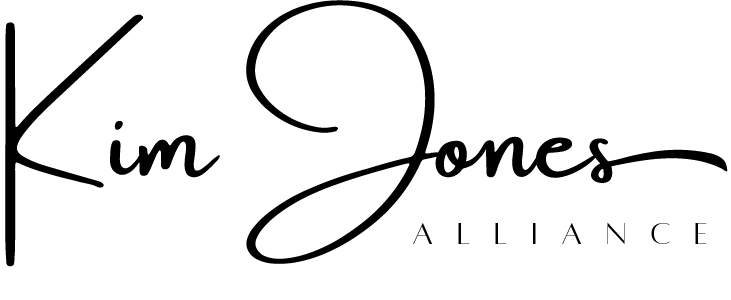Thinking About Leaving Your Career in Tech?
If you’re thinking about leaving your career in tech, you’re not alone. In fact, women leaving their jobs in IT is happening at near epidemic numbers, with more than half of women abandoning the field by the time they reach mid-career, an alarming statistic that’s more than double the rate of men.

Leaving Behind My Own Career in Tech
If you’re thinking about leaving your career in tech, I know just how difficult struggling with this decision is. I know because I was there myself not too long ago.
At the time, I had invested over a decade of my life into my job as an IT executive. My lifestyle as an IT exec was characterized by very little balance, high stress, and a good amount of career dissatisfaction.
And so, like many other IT women, I found myself in the challenging position of deciding whether to stay in the field I had put my blood, sweat, and tears into for over 10 years, or whether it was time for me to leave behind this high-stress life to pursue work where I felt more empowered and authentic. Because as a female IT leader, almost every day felt like a battle to prove my competence and demonstrate that I could cut it in a field that’s largely designed for men. This on top of the extreme demands of the job itself.
Turns out that the struggle women face in IT is a common byproduct of the cultures found in many tech shops, which are often set up in ways that make women feel like outsiders (the “brogrammer” cultures that are so infamous in tech, more on that later).
Even so, when it came down to it, actually leaving my career in tech behind was one of the toughest decisions I have ever made.
It was difficult because of how hard I had worked for my success. And, I knew that problematic IT cultures generally only change when leaders on the inside are willing to challenge the dynamics that create the inhospitable work conditions that so many employees deal with every day. But ultimately, I felt I would have a greater ability to influence tech cultures by going in a different direction.
With that, I left my job in early 2017, without knowing exactly what I would do next. What I did know was that I needed time to unpack what I had experienced during my IT career, and to reflect on ways I could use these experiences to influence the field in a new way.
This led me to pursue a second masters’ degree in cultural anthropology, where I spent the next several years studying how corporate power structures negatively impact the careers of women and other underrepresented groups across male-dominated fields like IT. I now combine my anthropology education with my business and IT background to help women navigate the conditions that lead so many of them to abandon their tech careers at a time when their voices are needed more than ever to ensure the industry evolves in a more inclusive and representative direction.
Why So Many Women Leave Their Careers in Tech
One of the most validating aspects of studying oppressive work cultures during my anthropology education was that I learned my experiences in IT were not personal.
I learned that women leaving their careers in tech is happening at near epidemic numbers, with more than half of women abandoning the field by the time they reach mid-career, an alarming statistic that’s more than double the rate of men.
So why is this happening? Turns out that the single largest driver of IT turnover was determined in a 2017 study by the Ford Foundation and Kapor Center for Social Impact to be the unfair treatment of workers, particularly women and other members of underrepresented groups, with 62% of workers who leave their IT jobs citing unfairness as a primary factor in their decision to move on.
So what causes this pervasive perception of unfairness? A primary reason is undoubtedly the Chilly Climate that exists in many IT shops, a term which was first coined by archaeologist Alison Wyle in 1994. The Chilly Climate exists in the inhospitable work environments women often face when working in male-centric fields, which has the effect of perpetuating their ongoing marginalization.
How Does Your IT Culture Impact You?
See if any of the characteristics of a Chilly Climate sound like what you’re experiencing in your IT job:
- Your work and ideas are consistently devalued or attributed to your colleagues or to luck.
- You feel excluded from your department’s networks and communication circles.
- You’re interrupted more often than your male colleagues, and your ideas are more likely to be discounted.
- You experience different criteria for hiring and promotion.
- You spend more time defending your decisions, and you get passed up for the best projects.
- There’s a tolerance for sexist comments about women’s tech abilities, and you may have even experienced sexual harassment.
If any of these dynamics ring true, rest assured that they’re likely not personal to you. In fact, these dynamics are common across many male-dominated fields, including IT, and they function to maintain the status quo of existing power structures.
Unfortunately, toxic IT environments have devastating consequences for women’s career trajectories.
Consequences like women being clustered in lower status jobs, with career paths and comp systems that look very different from those of their male counterparts. When their contributions are routinely dismissed or discounted, women’s confidence is significantly affected, resulting in disproportionately high levels of imposter syndrome which can negatively impact the ways they show up at work.
These combined factors lead many women to become frustrated and more likely to abandon their careers. And, alarmingly, when women leave tech, it reinforces the stereotype that women can’t cut it in IT, which only serves to strengthen the many biases they face.

The Brogrammer Culture
If some of these descriptions track with your experiences, you’re in good company.
In her groundbreaking book, Brotopia (2018), Bloomberg reporter Emily Chang painstakingly traces the origins of the harmful and false IT stereotypes that the best tech employees are young, white, and male. These tech “superstars” are often valued for their risk-taking tendencies and hyper confidence, traits which became especially coveted by IT companies during the height of the tech boom in 2007 when the PayPal mafia (made up of all men) was heralded as the model for tech innovation.
These harmful stereotypes have caused many tech organizations to bias their hiring and promotion decisions towards men fitting these profiles, which forms the foundation for the “brogrammer” cultures characterized by a fraternity-style, boys-club environment.
But, it’s worth noting that these sought-after hyper-confident, risk-taking traits have nothing to do with actual performance. In fact, many of the traits typically associated with female workers, including empathizing with customers, bringing forth good listening and communications skills, and displaying strong collaboration capabilities, are more closely associated with strong outcomes in tech organizations.
Despite these data, the IT stereotype favoring men continues to persist and be reinforced, with companies emulating the “brogrammer” culture as the ideal to be sought. And, as long as IT organizations keep emulating this harmful type of harmful work culture, women will continue fighting an uphill battle for an equal bite of the apple.
The Negative Impacts of Hustle Culture
Gender biases are not the only issue women face in tech organizations.
Recall that I stated earlier that the model tech worker is idealized as young, white, and male.
Youth is so coveted in tech companies because of the rampant existence of Hustle Culture in the IT industry, a work style made popular in Silicon Valley and characterized by the expectation that workers dedicate their entire waking lives in service to their jobs, regularly putting in 100-hour workweeks. Hustle culture glorifies the idea that work is a virtue worthy of committing one’s whole life to. Relationships, self-care, and other human needs like sleep are of lower priority, leading to a normalization of performative workaholism. As Elon Musk of Tesla famously said, “Nobody ever changed the world on 40 hours a week.”
Working in this type of climate is only achievable by a minimal number of people, typically young, uncommitted workers, and people whose personal obligations can be managed by life partners, which is more often the case with men than women. By contrast, when women begin having families or have to attend to priorities outside of work, they may feel they have no choice but to leave the IT field for lack of perceived options to accommodate their shifting life priorities.
Okay, so there’s the summary of why the tech industry has such a problem retaining women. And, while it’s great to have this background to explain the challenges IT women face, it doesn’t do much to help if you’re working in a toxic environment with no solution in sight for navigating these very real obstacles. And that’s where career coaching for women in IT can help.
How Career Coaching Can Help
Typically, the tech women I see in my coaching practice are fed up with their work environments and want to leave their careers in tech. They may not be fully aware that their experiences are shaped by systemic dynamics that permeate across many IT organizations.
Often, developing an awareness of these industry-wide dynamics, and devising a strategy for dealing with them, is a necessary first step in charting the best path forward.
While career transition (taking a new job in IT) or career transformation (changing industries) are viable options for addressing oppressive IT environments, another frequently overlooked option is devising a plan for effectively managing biased work conditions.
Such strategies, including developing allyships, tapping diversity and inclusion resources your company may already have in place, and forming Employee Resource Groups (ERGs) can be excellent ways to build the support and platform you need for navigating your challenges. Often, mobilizing like-minded resources within your organization can begin the education process needed to address biased cultures and behaviors. Depending on your circumstances, customized strategies for navigating your specific challenges can be created with the right career guidance for women in tech.
So before you decide to leave your IT career, consider hiring a career coach for women in tech to help you vet all available options for moving forward (learn more about my coaching services here). This will lessen the chance that you’ll end up in yet another oppressive tech environment, feeling just as frustrated as you are now. Doing so will help you explore the full range of career options and will give you the best shot of landing somewhere where you’ll truly be happy.
References
Chang, Emily. 2018. Brotopia: Breaking up the Boy’s Club of Silicon Valley. New York: Penguin Random House.
The Ford Foundation and Kapor Center for Social Impact. 2017. “Tech Leavers Study: A first-of-its-kind analysis of why people voluntarily left jobs in tech.”
Wylie, Alison. 1994. “The Trouble with Numbers: Workplace Climate Issues in Archaeology.” Archaeological Papers of The American Anthropological Association, Vol. 5, No. 1.
Yueh, Jedidiah. 2017. Disrupt or Die: What the World Needs to Learn from Silicon Valley to Survive the Digital Era. San Bernardino, CA: Lioncrest Publishers.
Don't miss the latest:
Kim Jones Alliance Founder and CEO to Address IMA Financial Group’s State of Business Summit—Greater Ventura County
Yes, You CAN Transform Your Career! Here’s How.
Tips & Strategies for Making a Career Change

Impact Your Organization
Bring impact to your organization by cultivating equitable cultures and engaged employees.
Kim Jones Alliance offers Corporate coaching, Gender equity advising, Speaking engagements and workshops for organizations seeking a high performing, engaged, and innovative workforce.



